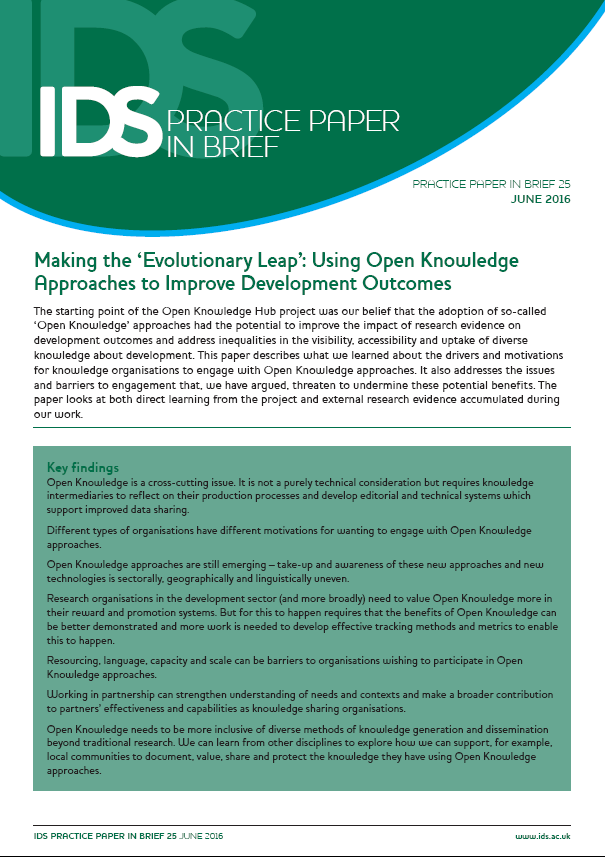The Institute of Development Studies (IDS) is a leading global institution for development research, teaching and learning, and impact and communications, based at the University of Sussex.
Our vision is of equal and sustainable societies, locally and globally, where everyone can live secure, fulfilling lives free from poverty and injustice. We believe passionately that cutting-edge research, knowledge and evidence are crucial in shaping the changes needed for our broader vision to be realised, and to support people, societies and institutions to navigate the challenges ahead.
Through our commitment to engaged excellence we work towards transformations that reduce inequalities, accelerate sustainability and build more inclusive and secure societies. We do this neither as a university organisation nor a thinktank, but by combining elements of both in a unique mix that is articulated in our engaged excellence approach.
Since 1966 IDS has been working with partners to tackle complex development challenges and contribute the evidence, analysis, theory and facilitated learning that can help communities, practitioners and decision-makers at all levels work together for practical, positive change. Our partnership with the University of Sussex supports and accredits our teaching and learning programmes, where in PhD studies and a range of high-level Masters’ courses we aim to produce a new generation of development thought, policy and practice leaders.
The Institute is home to approximately 100 researchers affiliated to thematic research clusters, 70 knowledge professionals, 65 professional staff and about 200 students at any one time. But the IDS community extends far beyond, encompassing an extensive network of over over 360 partners, 3,000 alumni and hundreds of former staff.
Resources
Displaying 6 - 10 of 36Inclusive Land Governance in Mozambique: Good Law, Bad Politics?
Analyses inclusive land governance in Mozambique. Focuses on the country’s legal framework and the DUAT, the right to use and benefit from the land. The DUAT is a distinctive element of the Mozambican legislation that has land as the property of the state but recognises land use rights for occupants and users on the basis of a unitary system of tenure. The challenges of putting in practice what is thought to be one of Africa’s most progressive legal frameworks are discussed.
Making the ‘Evolutionary Leap’: Using Open Knowledge Approaches to Improve Development Outcomes
The starting point of the Open Knowledge Hub project was our belief that the adoption of so-called ‘Open Knowledge’ approaches had the potential to improve the impact of research evidence on development outcomes and address inequalities in the visibility, accessibility and uptake of diverse knowledge about development.
One Health working brings widespread Rift Valley fever out of the shadows
Género y seguridad alimentaria. Hacia una seguridad alimentaria y nutricional con justicia de género
El presente informe forma parte de la Canasta Básica de BRIDGE sobre Género y Seguridad Alimentaria, que también incluye el boletín En breve. Es resultado de un programa de colaboración en el cual participa una gama diversa de profesionales, investigadoras/es, activistas y asesoras/es para políticas que trabajan en género y seguridad alimentaria en África, América Latina, Asia, Europa y Norteamérica.
Under What Circumstances and Conditions Does Adoption of Technology Result in Increased Agricultural Productivity? A Systematic Review
New technology that enables sustainable and profitable production of food and fibre is critical for both food security and economic development. Whether framed in terms of modernisation, productivity enhancement, poverty reduction, social protection, environmental protection or adaptation to climate change, technical change is at the heart of most agricultural policy, programmes and projects. From a development perspective, a nagging question is why the benefits of new agricultural technology often appear to by-pass poorer farmers – even when they are the ‘target’ group.








